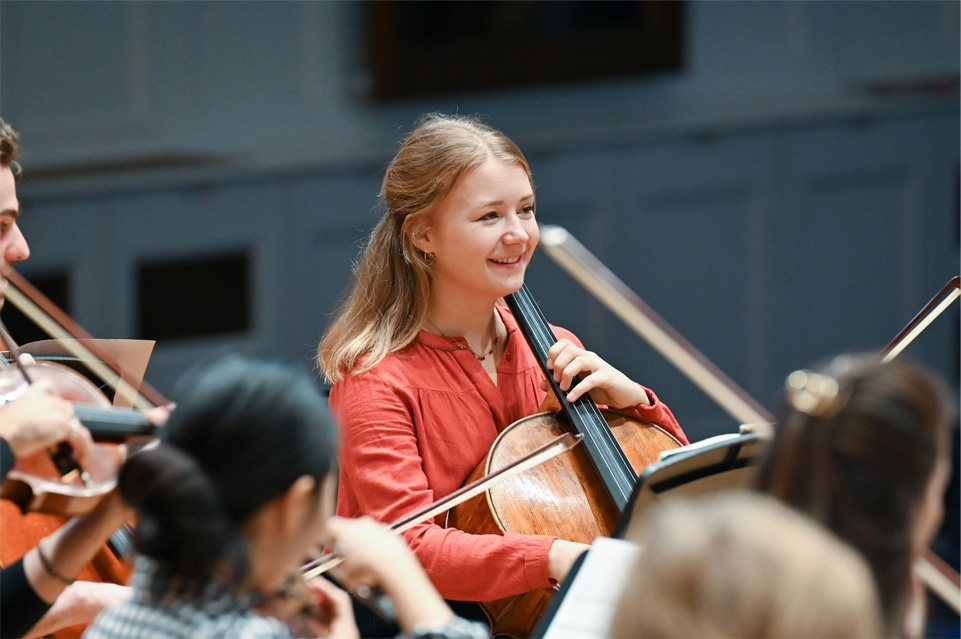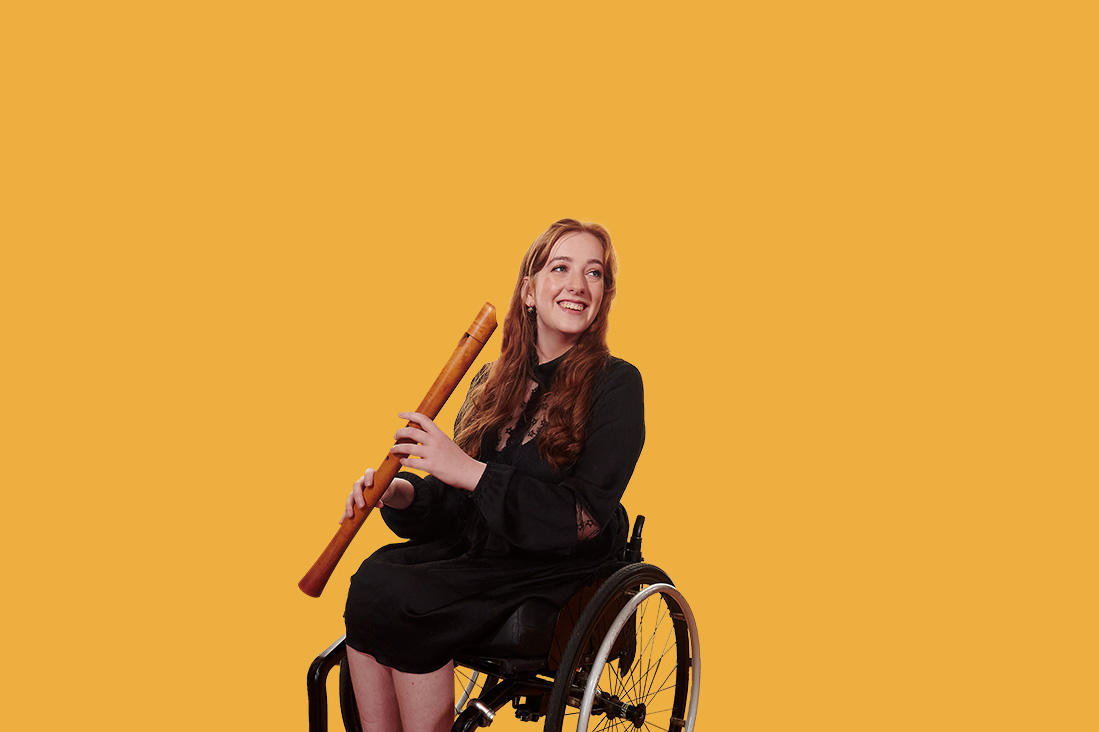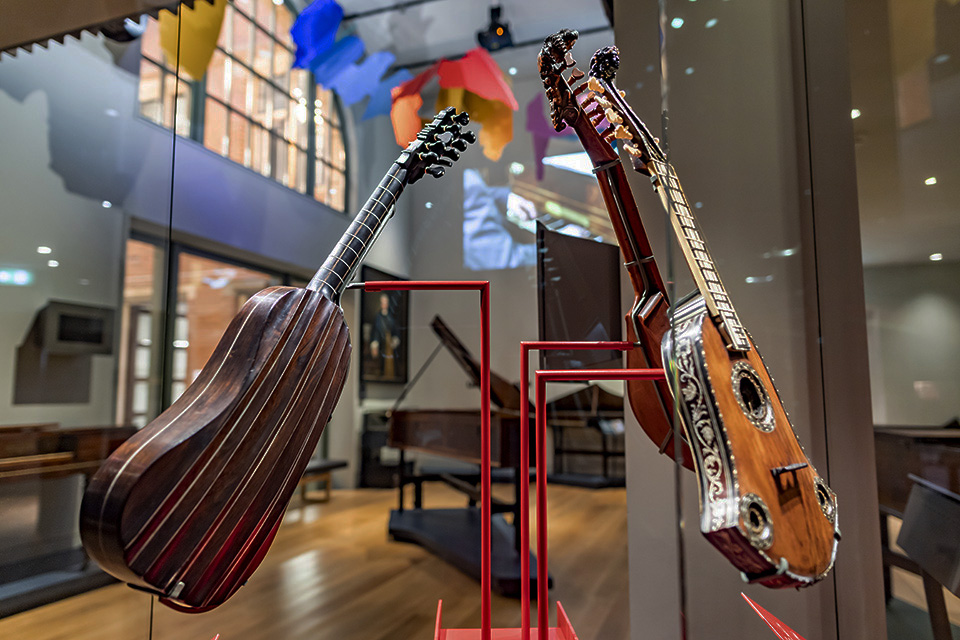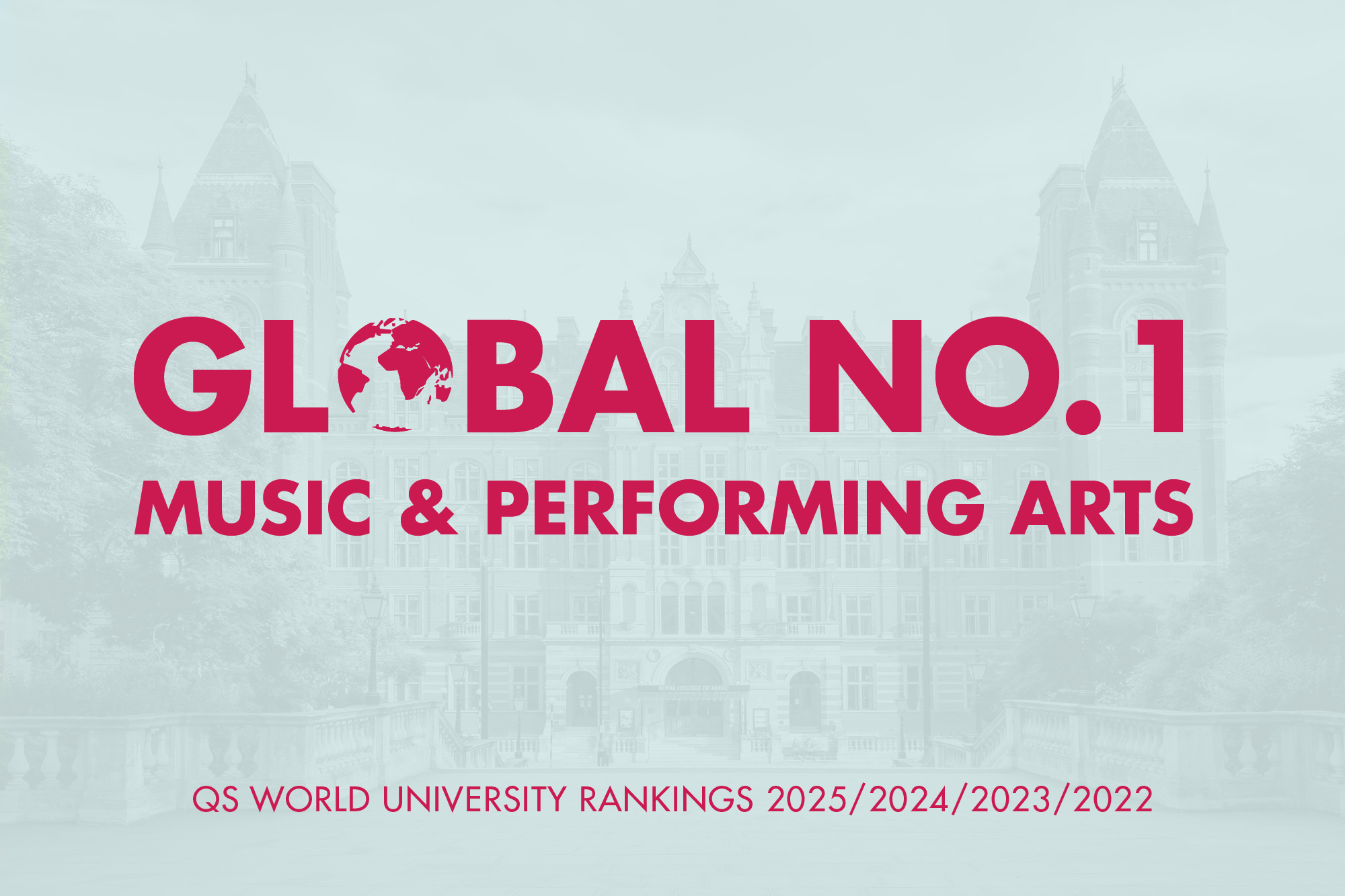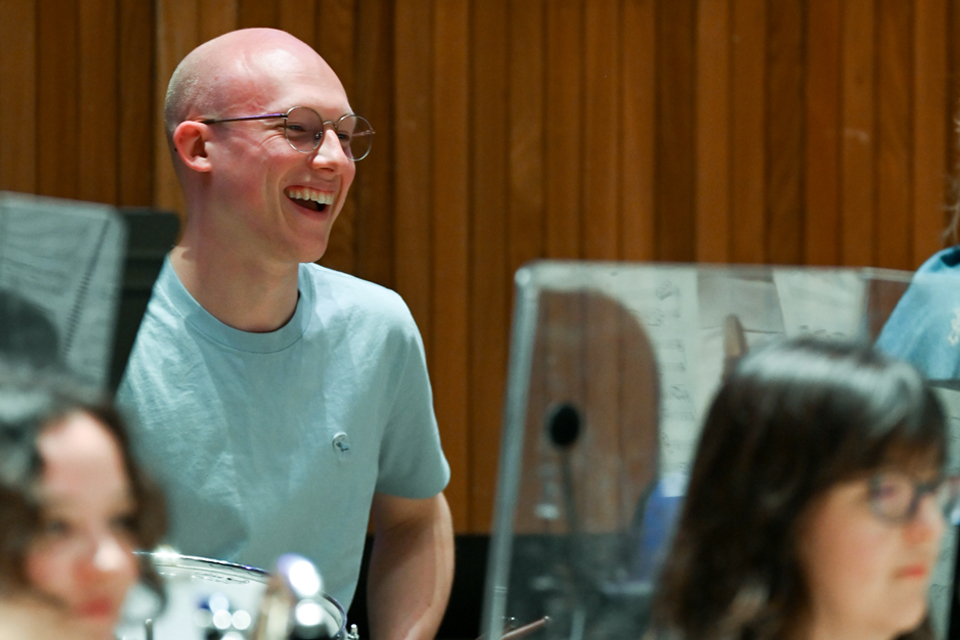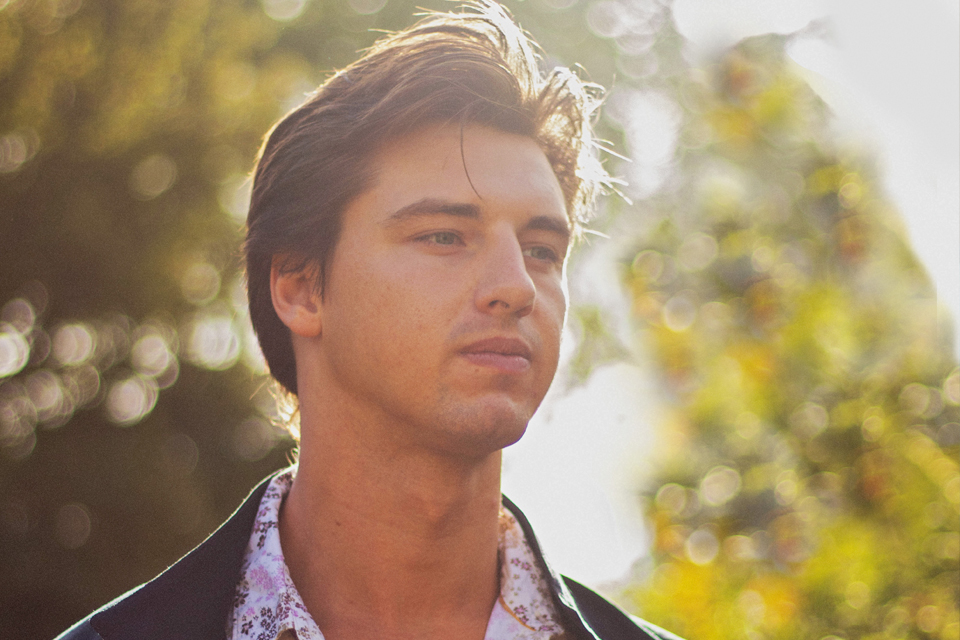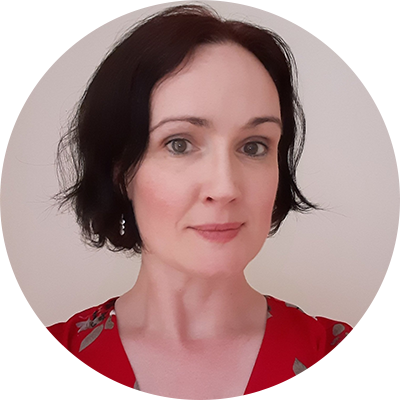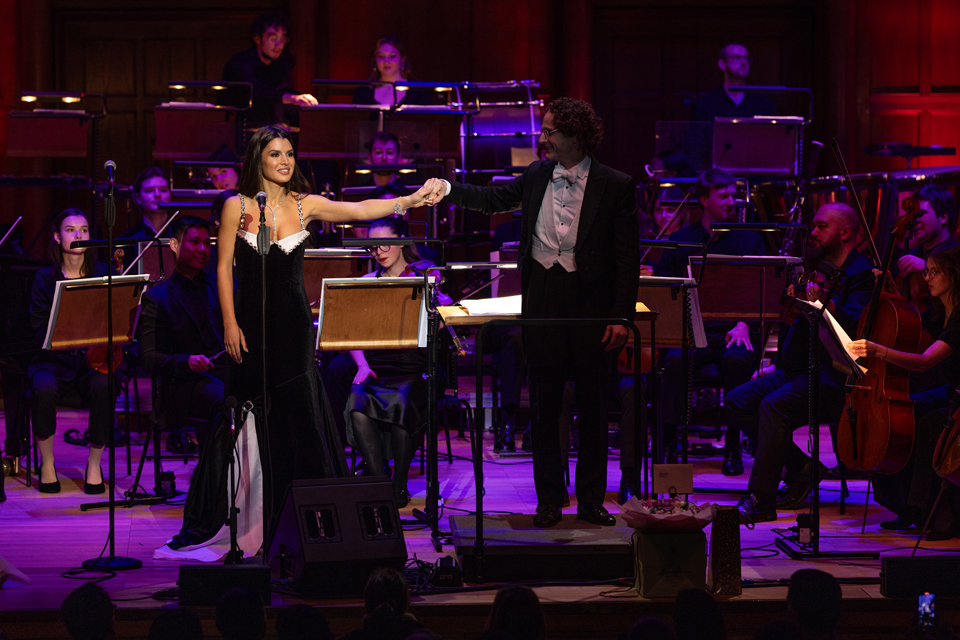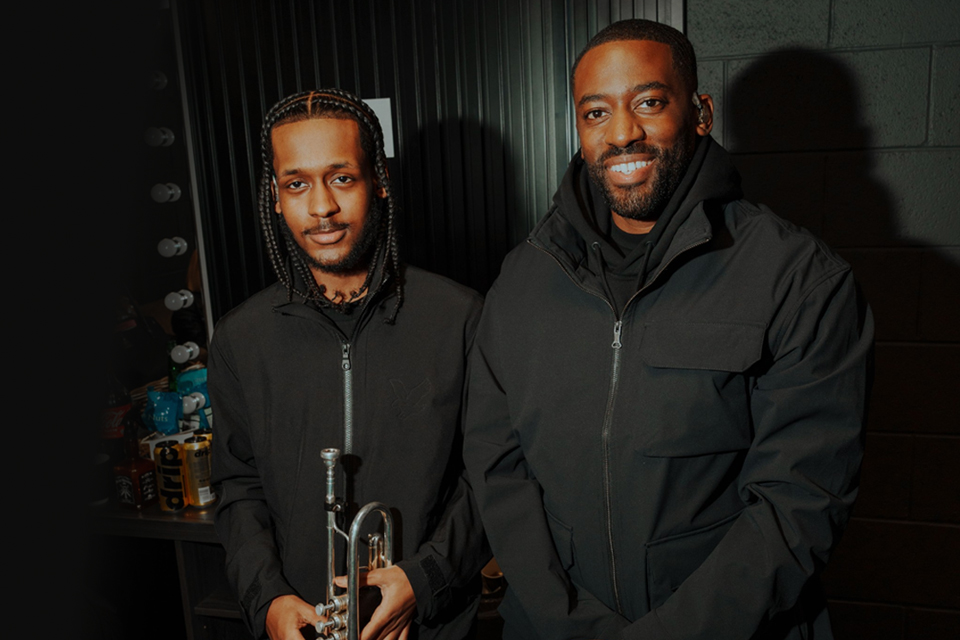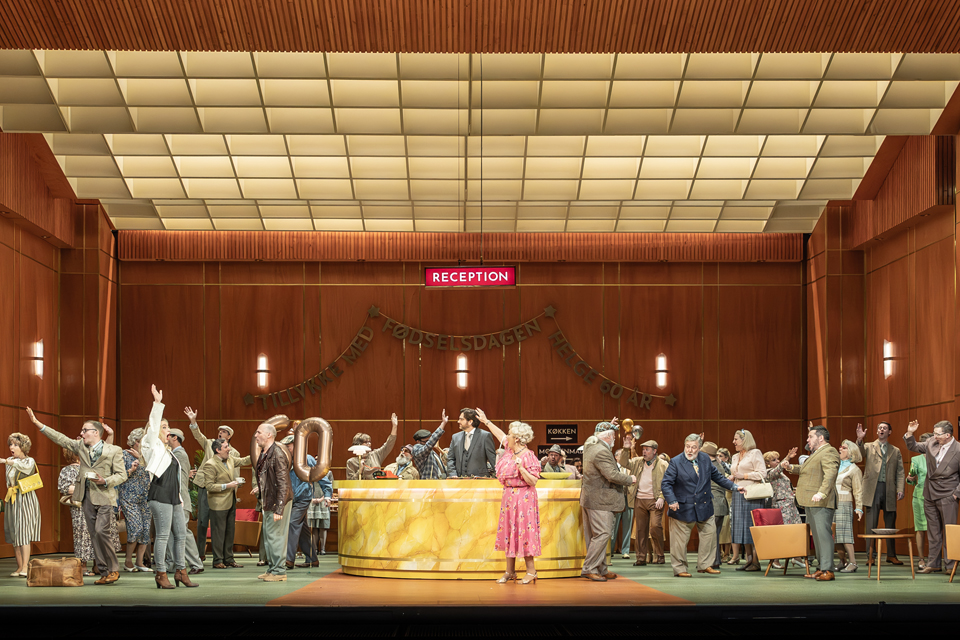‘I was in Abbey Road working on Black Panther thanks to the Royal College of Music!’
Share #UpbeatOnline
Upbeat meets up-and-coming composer Luke Mombrea to hear about his experience of studying at the Royal College of Music and how the Creative Careers Centre, which turns 25 this year, helped to shape his career so far.
Luke Mombrea, who graduated from the RCM with an MMus in Composition in 2022, is making waves as a composer both in the concert hall and in film and television. Highlights include the LSO Soundhub scheme, culminating in a performance of his work Black Gold.
He also regularly orchestrates and prepares film and TV scores, including working on Silo, Prehistoric Planet, Loki, Black Panther: Wakanda Forever and The Wild Robot. He recently finished scoring an HBO/Warner Pilot called Point Unknown, the soundtrack of which will be released soon.
Upbeat asked Luke to recall his time at the RCM and how the Creative Careers Centre supported him: read on to hear what he had to say.
[image1]
Tight-knit community
’It was wonderful coming to the Royal College of Music as an international student. I’m from the United States, and initially studied at UCLA (University of California, Los Angeles), where there’s a conservatory within a large university. At the RCM, it was fun being part of a tighter-knit group of people all studying music. It was very special stepping into a building where the atmosphere is all about pursuing what you want to do musically – that was a major highlight.
There were lots of great opportunities to pursue the sorts of projects you want as a composer at the RCM. For instance, composers might work on the opera project, collaborating with Tête à Tête, if they’re interested in writing that type of music; or, as I did, work towards the Great Exhibitionist series, which involved an audio-visual installation, or collaborations such as the Head On Photo Festival, during which one of my pieces was performed. It was great that there weren’t pre-set compositions you had to produce, so that if you prefer to specialise in, say, chamber or orchestral music, you can.
[image2]
Screen time
’Another major factor in choosing to study at the RCM is that there are lots of film music opportunities. The ability to cover both Composition and Composition for Screen was really important, because even if you’re writing music for film rather than the concert hall, many of the skills involved come from the same place – the pure composition component feeds into writing for screen. There’s a musical core that comes from that compositional study. I bring a lot of things I’ve learned at the RCM that were not specifically related to films into the film music I write. Both those parts of the Masters course were really helpful to me.
[quote quote="One of my favourite aspects of College was working with performers, and how open a lot of players were to collaborating." author=""]
I particularly enjoyed writing for Consort 21, working with a great harpsichordist and pianist Paul Mnatsakanov to create a piece for harpsichord and electronics. In lots of places, you’d never get to do this; many universities in the US don’t even have a Historical Performance Faculty. But at the RCM, we were encouraged to explore these different instruments, which I thought was incredibly cool.
[image3]
Forming friendships
’I liked building those relationship with players at College – that’s been a huge thing for me. Ever since, when working on my album or a film score, I make sure I get to know the players really well and experiment alongside them.
One of my favourite aspects of College was working with performers, and how open a lot of players were to collaborating. It’s the same with film music now: if you like working with the musicians then you all get to be proud of the thing that you made together. I recently worked on a pilot currently being developed by HBO, and I asked a Royal College of Music player, Michelle Hromin, to perform. She was also on the Masters programme and I asked her to play bass clarinet on a very pivotal scene towards the end of the show. I used lots of extended techniques – singing through the instrument, multiphonics, extreme leaps in register – that I had worked on with her in other pieces I’d written at College, and that gave me a unique timbre for that scene, which is what the director wanted.
[image4]
[quote quote="When you’re in College, your career is an aspirational idea, but the Creative Careers Centre has lots of practical suggestions to make it happen." author=""]
Control your own destiny
’My advice to young composers is: become friends with the players. Get to know them as people. Obviously, it’s a great way to build a friendship group and it can be a lot of fun, but also, if you want works performed you can learn only so much from an orchestration textbook; it’s a lot of surface level information. Whereas if you really want to learn how to write for instruments, get to know the instrumentalists.
You can control your own destiny that way. A lot of composers tend to wait to get accepted to schemes or get commissions, and that kind of thing is great, but if you get to know players and other composers and interact with them, you can play their music, they can play your music. You start to get pieces out there that you want performed without having to seek approval from some larger organisation.
It makes sense for your wellbeing, too, because composition is typically something that’s quite isolated, so the fact that you’re reaching out to people and collaborating is really important. Working in film now, I get to help other composers and they’re so appreciative.
[quote quote="Soon after I finished at the College, I was in Abbey Road Studios for the Black Panther sessions. And that came from collaborating with other students at the Royal College of Music." author=""]
A springboard to success
’The Creative Careers Centre (CCC) helped me to apply successfully for the Accelerate Grant, and to budget in detail for projects such as my first album, which comes out soon. They were really helpful in providing a practical approach of how to navigate the music world. When you’re in College, your career is an aspirational idea, but the Creative Careers Centre has lots of practical suggestions to make it happen. Diana Roberts, Head of the Creative Careers Centre, and the CCC team, understand that the challenges facing a composer will be different from those for another kind of musician. They have a conversation with you and figure out the type of work that suits you, any issues that are specific to you, and then find someone to support you who understands.
[image5]
The Royal College of Music directly led to me getting the job I have now. I’d planned on going to London for a year and then going back to LA, because I’d started working in the film industry there. But I got work at an orchestration and music preparation company in London, Charts of London, through another RCM student, Levent Altuntas, who recommended me, and that’s how I ended up working on films like Black Panther, Loki, and so on. Levent studied Composition for Screen in the year above me and felt this role would suit my skillset, so I applied and was accepted. I remember shortly after I finished at the College, I was in Abbey Road Studios for the Black Panther sessions. And that came about thanks to my time collaborating with other students at the Royal College of Music. It was incredible. And it’s the best feeling when the people you know like what you do. My parents love my work on the Apple TV show Silo, and I think: I did that!’
RCM Creative Careers Centre at 25
The RCM remains grateful to the late Paul Woodhouse and benefactor Peter Willan for the generous gift and support which enabled the department to begin its mission. A series of 25 events is underway throughout the 2024/25 academic year to mark 25 years of the Creative Careers Centre. Find out more: Royal College of Music’s Creative Careers Centre celebrates 25 years of support for RCM students and graduating musicians | Royal College of Music


